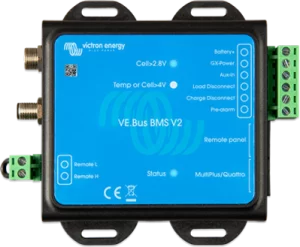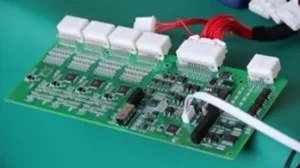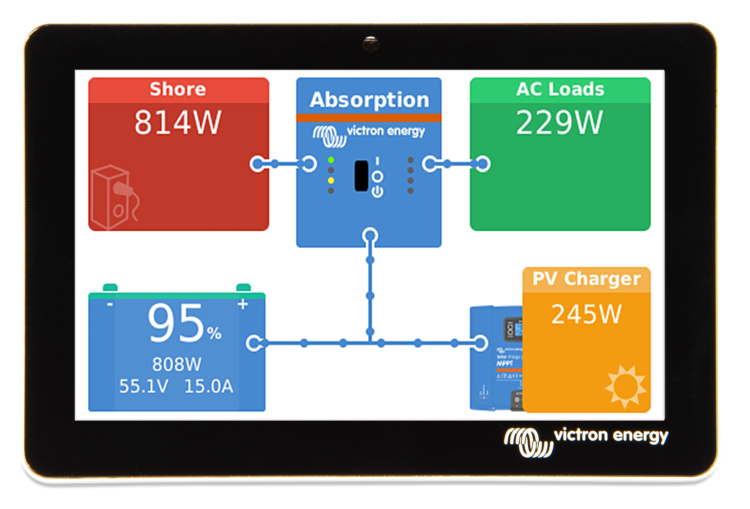What is a BMS?
A BMS system monitors and manages the battery’s charge and discharge processes. These systems are just circuit boards with logic to observe and regulate the operating conditions of the battery. For most Lithium batteries the BMS comes built into the battery, however it is also possible to have an external BMS as shown below.
Have you ever been faced with data that was inaccurate or uncalibrated? The frustration of seeing your phone battery going from 83% to 5% to switching off in a few seconds or minutes. Or better yet swelling batteries with in the first 3 – 6 months of use. BMS communication can address this issue.
Technology has come a long way from the days of having Lead Acid batteries as the main source of energy storage. These days, we now have Lithium-ion batteries of which most come with what is called a Battery Management System (BMS).


Why use a BMS?
As mentioned, BMS protects a battery from harmful charge and discharge conditions. By doing this, it extends the service life of the battery. Some manufacturers have allowed options for Wi-Fi or Bluetooth monitoring to check the condition of a battery. While doing this, most OEMs offer a more favorable warranties should they have access to manage your battery/system.
A BMS can also provide protection against hazardous conditions considering the nature of Lithium-ion batteries. Finally, in a solar PV system for example, a BMS allows for interfacing with other equipment to increase your system’s efficiency.
How does a BMS protect a battery?
By monitoring the discharge and charge process of the battery, the BMS checks if there are any parameters outside of the specified operating ranges then either cuts off the power flow to and from or it can adjust the parameters that are out of bound.
It measures mostly the main parameters such as voltage, current, and temperature. The protection features available with most Battery Management Systems’ including:
- Cell Balancing
- Overcharge
- Overvoltage
- Overcurrent
- Overtemperature
- Short circuit
- Undervoltage
Will my system work without a BMS?
In the case of a solar system, all though an inverter and battery can function without BMS communication, it is always preferred to ensure that the battery and the inverter communicate to avoid any installation and operational issues.
The downside of this is that the inverter will function based on the voltage reading from its battery terminals of which they will be about a 1 – 3 % discrepancy from the actual battery voltage. The inverter will also not report the correct battery SOC which will make the inverter monitoring tool almost useless.
Should an installer or end user enter the incorrect battery parameters this could damage your battery over time.
Sources:
Analysis of common failures of BMS, an important partner of Li-ion battery pack | BSL Battery
Lithium Ion Battery Management and Protection Module (BMS ) | Circuit Digest
LiFePO4 BMS (Understanding a battery management system) | Climatebiz


Leave a Reply